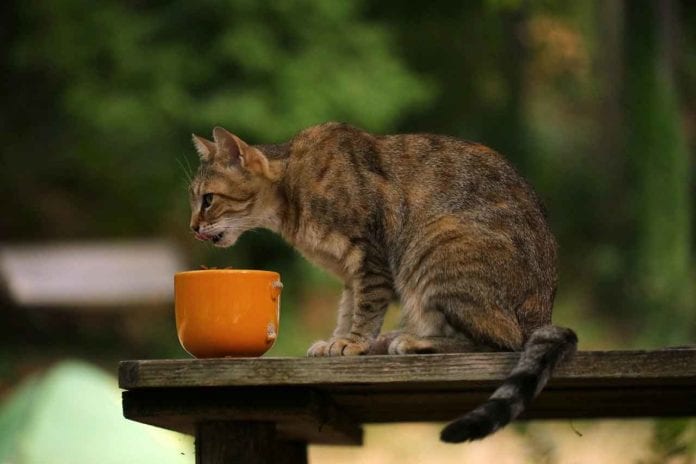The diet of domestic cats must be balanced, varied and contain all the vitamins, minerals and nutrients necessary for the animal, whether natural food or ready to use. However, unfortunately, owners are not always able to provide their animals with a healthy and appropriate diet because of this, quite often in domestic cats there is hypovitaminosis, a deficiency of minerals and certain amino acids in the body. This is due to the monotony of the diet, and sometimes the refusal of a balanced diet due to the sensitivity of the cat.
Vitamins for cats play an important role in increasing the intensity of all body processes: they regulate the metabolism of cats, promote the growth and development of young animals, prolong the life of adult animals, strengthen muscles , have a positive effect on the circulatory and skeletal systems. Vitamins increase the body’s resistance to the effects of environmental factors, strengthen the immune system and, if the cat is sick, speed up recovery.
If a cat is deficient in vitamins for a long time, there are violations of many bodily functions.
Lack of protein, vitamins A and B can have very serious consequences on the health of your pet. Lack of protein and vitamin A reduces immunity. If vitamin A is deficient and there is a vitamin C deficiency, the natural resistance of surface cells, especially the epithelium of the gastrointestinal tract, decreases.
One of the specific consequences of a lack of vitamins and minerals in the cat’s body is diseases of the skeletal system, which occur when an animal is fed exclusively on meat or fish (without cartilage or bone).
Vitamin D deficiency in cats is very rare because they need very little vitamin D. So, when fish oil or vitamin D is added to the food, intoxication is possible because cat needs 50 to 100 PED / day. Therefore, rickets rarely occurs in cats, and the cause is too high doses of calcium with minimal doses of phosphorus.
Since the cat’s body is unable to synthesize vitamin A from the components of provitamins in plant foods, there is a risk of deficiency. At its deficiency, there are diseases of the skin and eyes, bone defects and disturbances of sexual function.
Vitamin E deficiency, excess saturated fatty acids, such as when fed exclusively on certain species or varieties of canned fish, consumption of large quantities of herring oil or fish oil, cause jaundice fatty, polyneuritis and various nervous disorders (anorexia, ataxia, spinal hyperesthesia, reflex disorders).
If cats do not receive enough thiamine, for example, by feeding the animal exclusively industrial canned food where the thiamine is destroyed during hot sterilization, there are also negative changes in health. The pellagra of the cat with erosions of the tongue develops due to the lack of nicotinic acid, because the body of the cat does not have the capacity to synthesize it alone.
All these diseases are the result of a deficiency in certain substances or elements, but there are many pathologies resulting from an excess of these same substances. Hypervitaminosis, which occurs after prolonged feeding of the raw liver, is called chronic hypervitaminosis and leads to a deformation of the cervical spondylosis with the formation of ankylosis and subsequent clinical signs of pain during movement, in particular of the head (apart from the kangaroo), abnormal movements and limited cervical mobility. In addition, the animal loses weight despite a good appetite. Ankylosing bone changes are seen on the spine and proximal joints of the extremities.
Only a veterinarian can determine if your pet is suffering from hypovitaminosis or hypervitaminosis.
When choosing vitamins for cats, keep in mind that vitamins for cats and cat treats with vitamins are different.
Treats with vitamins can be administered to the cat every day, since their vitamin content is very low.
Vitamins for cats should not be administered to the animal permanently. They are given to cats in progress, in the fall, in the spring and as needed, for example, after illness or surgery.
Before buying vitamin preparations and giving them to your furry friend, the animal must be presented to a veterinarian so as not to confuse the symptoms of a serious illness with signs of hypovitaminosis. Consultation is also necessary because vitamin supplements are prescribed based on the age, sex, weight, animal health and breed of cat.


